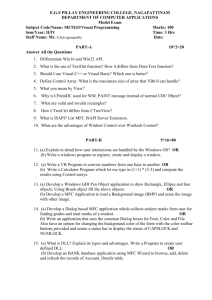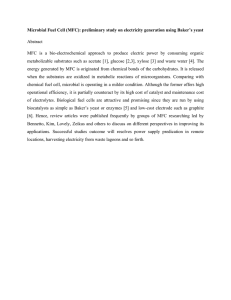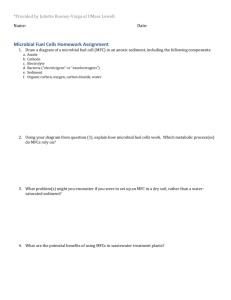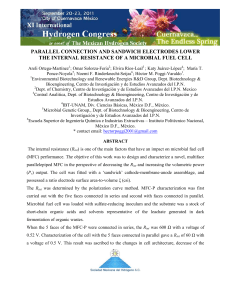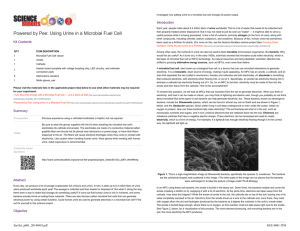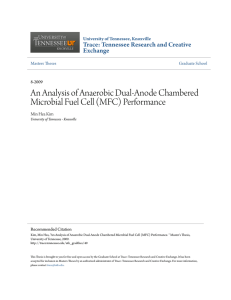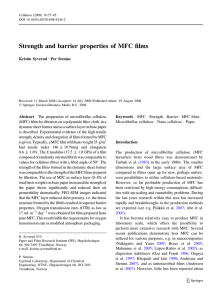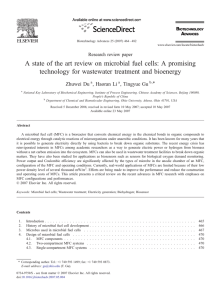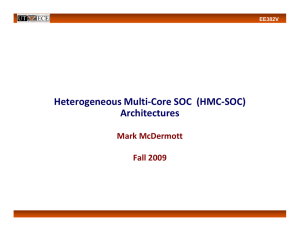MFCs are capable of converting the chemical energy stored
advertisement
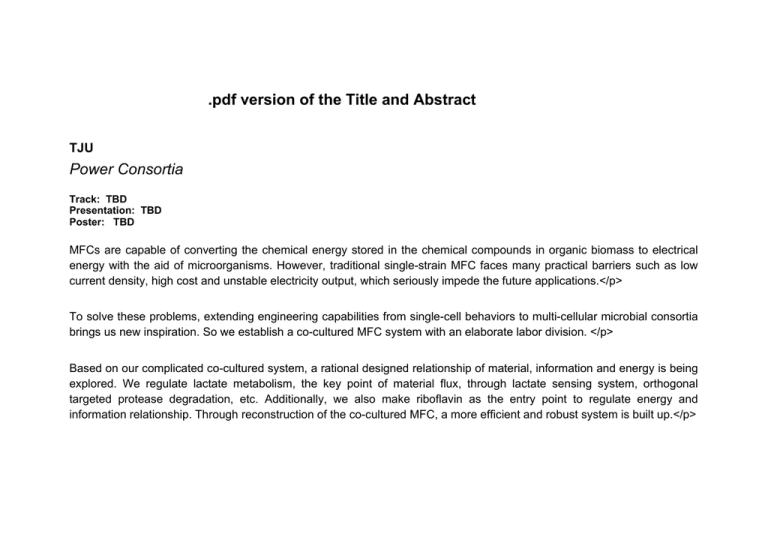
.pdf version of the Title and Abstract TJU Power Consortia Track: TBD Presentation: TBD Poster: TBD MFCs are capable of converting the chemical energy stored in the chemical compounds in organic biomass to electrical energy with the aid of microorganisms. However, traditional single-strain MFC faces many practical barriers such as low current density, high cost and unstable electricity output, which seriously impede the future applications.</p> To solve these problems, extending engineering capabilities from single-cell behaviors to multi-cellular microbial consortia brings us new inspiration. So we establish a co-cultured MFC system with an elaborate labor division. </p> Based on our complicated co-cultured system, a rational designed relationship of material, information and energy is being explored. We regulate lactate metabolism, the key point of material flux, through lactate sensing system, orthogonal targeted protease degradation, etc. Additionally, we also make riboflavin as the entry point to regulate energy and information relationship. Through reconstruction of the co-cultured MFC, a more efficient and robust system is built up.</p>
